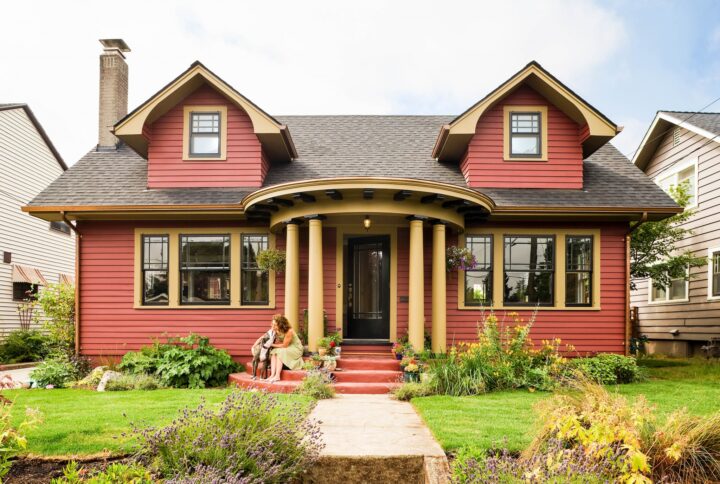What Are HOA Fees? A Guide to Homeowners Association Fees


Written by Alycia Lucio on August 15, 2023
When you purchase a home in a community governed by a homeowners association (HOA), you automatically become a member and will be required to pay ongoing quarterly or monthly HOA fees as long as you own the home. HOA fees cover maintenance and upkeep of common areas, like shared walkways, elevators, parking lots or community parks. HOAs are most commonly found in condominium and co-op communities, but some single-family home neighbors are also part of an HOA.
HOA fees can range from less than $100 per month to more than $1,000, depending on where you live and how many amenities are offered. They can also affect your eligibility for a loan, since HOA dues are calculated into your debt-to-income ratio.
On Zillow, you can filter your home search to exclude homes with HOA fees or set a maximum monthly HOA fee amount under the “More Filters” option. Already found a home you love? Consider financing your home purchase with us at Zillow Home Loans.
What do HOA fees cover?
Generally, HOA fees cover the maintenance and repair of common areas. This includes things like landscaping, exterior paint, pool maintenance and snow removal. It’s also common for HOA dues to pay for liability and property insurance for common areas and shared amenities.
Here are a few more items that are commonly paid for through a homeowners association:
- Security services like cameras, gates and guards
- Utilities like trash removal, water and wastewater
- Reserve funds set aside to pay for major repairs or unexpected maintenance of shared amenities and spaces
Homeowners associations are also able to levy special assessments from time to time. In these cases, each homeowner makes a lump sum, one-time payment to help cover the cost of large-scale repairs, like a new elevator, fence or roof replacement.
How much are HOA fees?
HOA fees can range anywhere between $100 and $1,000 a month for most properties in HOA communities. According to the US Census, the average HOA fee in 2021 was $191 a month. Generally, the more services and amenities included, the more you’ll pay. Here are a few state-by-state monthly HOA fee averages from the same report:
- California: $291.90
- Florida: $240.10
- Texas: $109.30
- New York: $998.60
- Illinois: $288.40
In addition to monthly dues, HOA communities often have a cash reserve saved for costly repairs and replacements. If there isn’t enough money in the reserve to cover the repair, you may be charged an additional amount to fund the unplanned special assessment. A missed or late payment can also result in additional fees on top of your monthly dues, while not complying with HOA rules may lead to an even larger fine.
What happens if you don't pay HOA fees?
Like any other late payment, late HOA dues usually lead to a late fee. If you continue to avoid payment, many HOAs have the power to initiate a lawsuit and place a lien on your property until you make your delinquent payments. In some extreme cases, the HOA may even be able to foreclose on your home.
Consequences for not paying your HOA dues or fees depends on your community’s Covenants, Conditions and Restrictions (CC&R) — these are the rights and obligations of the homeowners association and the homeowners. CC&Rs are legally binding, so it’s important that you review the details of your financial obligations before buying a property governed by an HOA.
Are HOA fees tax deductible?
HOA fees are not typically tax deductible if the home is your primary residence. The only exception is if you use part of your home as a home office. In this case, you can deduct a portion of your HOA fees based on the percentage of the home’s square footage that is used exclusively for work.
You may also be able to deduct HOA costs on rental property as part of your rental expenses. If you own a rental property, consult a tax professional with any questions you may have about whether or not you can deduct your HOA fees.
Are HOA fees negotiable?
While HOA fees aren’t usually negotiable, you may be eligible for a discount if you’re a first-time home buyer, military service member or senior citizen.
If you’re concerned about the HOA fees in your community, you can contact the board. Better yet, you can run for a spot on your HOA board and work side-by-side with your fellow homeowners to uncover ways to save money.
Are homeowners associations worth it?
HOA fees are just one part of living in homeowners association community. The additional monthly cost of HOA fees can be a deal-breaker for some homeowners, but living in an HOA can also provide tangible benefits like great amenities, security and a sense of community pride. Here are a few of the biggest benefits and drawbacks to living in an HOA-governed community.
Benefits of HOAs
- Sense of community
- Better security
- Protected property values, as all members are required to take good care of their homes and communal spaces
- Less maintenance work, as tasks like raking leaves and clearing snow are often included
- Access to amenities that may be too expensive to own and maintain alone, like a swimming pool, tennis court, gym or concierge services.
Drawbacks of HOAs
- Ongoing monthly costs
- Unpredictable special assessment
- Having to follow strict rules you may not agree with
- Slow resolution to resolving problems and complaints
Making your decision
Choosing whether or not to live in an HOA community is a big decision. The best place to start is by thoroughly reviewing the CC&Rs and any other governing documents. Make sure you understand the financial obligations, the rules you’ll have to follow and your responsibilities as a member.
If you are considering purchasing a home that has an HOA but concerned about the rules limiting your rights as a homeowner, just remember that you do have a voice as a member of an HOA. As a member of the community, you can vote to change the rules; keep in mind that each HOA has its own set of rules and procedural guidelines. Other community members may support your opinion and agree with your vision for the community.
Tags
How much home can you afford?
At Zillow Home Loans, we can pre-qualify you in as little as 5 minutes, with no impact to your credit score.
Zillow Home Loans, NMLS # 10287. Equal Housing Lender
Get pre-qualifiedHow much home can you afford?
See what's in reach with low down payment options, no hidden fees and step-by-step guidance from us at
Zillow Home Loans.
Zillow Home Loans, NMLS # 10287. Equal Housing Lender
Calculate your BuyAbility℠
Related Articles
Get a mortgage with Zillow Home Loans
Go from dreaming to owning with low down payment options, competitive rates and no hidden fees. A dedicated loan officer will guide you until you have your keys in hand.

Zillow Home Loans, NMLS #10287. Equal Housing Lender.



